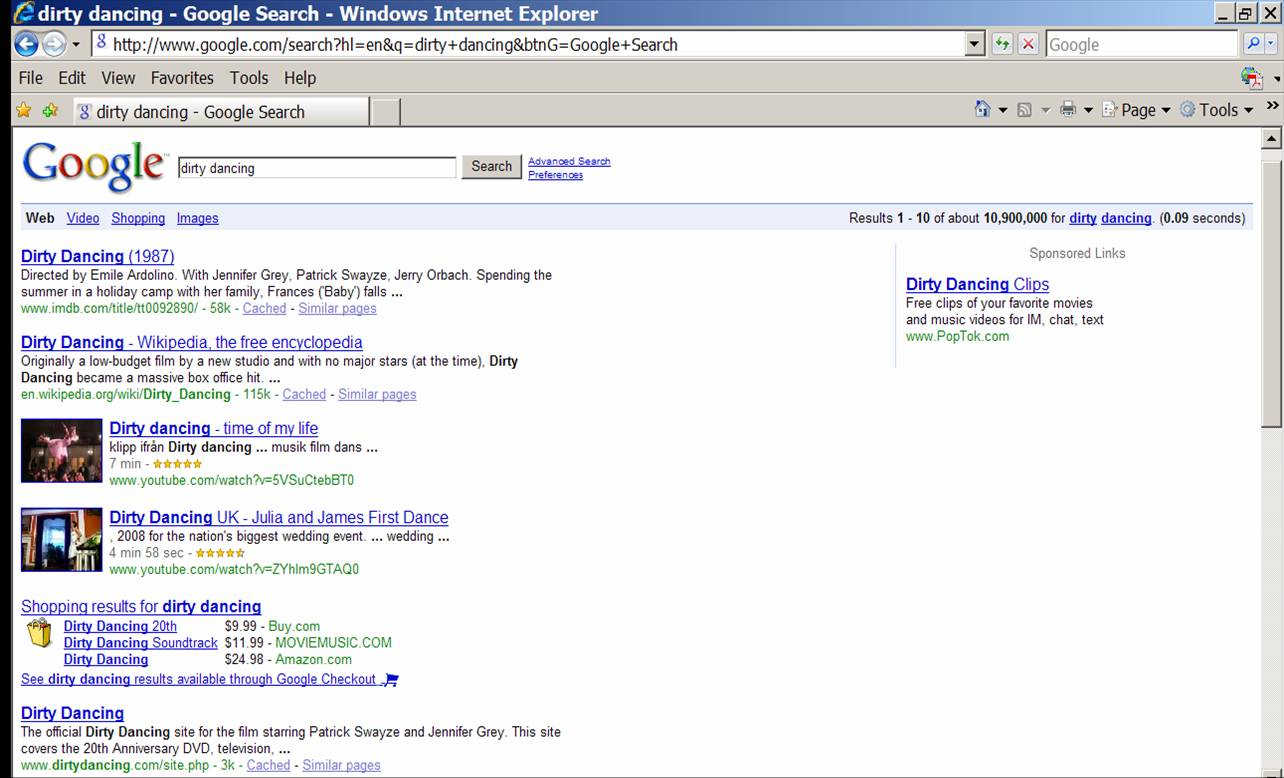You are here Google Search as the Universal Remote?
Submitted by Scott Cleland on Mon, 2008-08-18 15:05
Does Google inherently favor its Google-owned applications over competitors in search results? The more one looks, the more it looks that way.
Saturday's New York Times article: "Some Media companies choose to profit from pirated YouTube clips" -- got me thinking about the anti-competitive nature of Google's increasing dominance of the process of locating copyrighted content online.
- What a truly thought-provoking headline.
- Why are some companies "choosing" to profit from the "pirating" of their content?
- Could it be that they really have no practical competitive alternative or "choice?"
- Content providers are in the business of "profiting" off the sale of their property and creation.
- Google-YouTube is the leading online video streaming site with about 37% share (per ComScore) seven times the share of their nearest online video competitor.
- Clearly YouTube enjoys a first mover effect.
- Does it also enjoy the powerful network effects of being vertically-owned and promoted by the dominant search advertising platform that controls ~75% of US Internet advertising revenues and ~89% of US Internet advertising profits?
- Duh. Of course it does. A large portion of people find YouTube clips from Google search results, which by the way automatically ranks YouTube high because... of its leading share. Nice feedback loop/perpetual motion machine...
- Are content providers concluding that they have no "choice" but to cooperate with Google -- the owner of the effective online "universal remote" of the future? Sure looks that way.
- Why would content companies' "choose" to work with one of the leading distributors of pirated content?
- Could it be that some have given up on winning the war against online piracy and are choosing to recoup pennies on the dollar, rather than get nothing but legal bills?
- Could it be that they have resigned themselves to the fact that Google is and will increasingly be the "universal remote" or way that people find their video content in the future and that they better start "getting with the program" and start paying homage to the Googleopoly overlord that increasingly will control much of their business fate?
- If you can't beat em, join em as an Internet serf and get "taken care of" by the Internet's content overlord.
- It won't be the first time people have had to make that so-called "choice."
- For fun, I searched on one of the content items mentioned in the New York Times article: "Dirty Dancing."
- I can't say I was surprised to find that two Google-YouTube clips of the Dirty Dancing movie were ranked in the search results above the official Dirty Dancing site where the content company most fully benefits from their ownership of the Dirty Dancing movie.

Bottom line: My point here is that Google is so dominant a gateway to finding anything online, that for lots of content like movies, TV etc., the Google search bar is becoming the de facto "universal remote" for a wide swath of consumers trying to locate content online.
- Moreover, the DOJ investigation of the Google-Yahoo partnership is providing a forum for competitors and the antitrust community to learn how:
- Google is not a neutral search engine, but inherently favors Google-owned applications over competitors'; and
- Google is systematically anti-competitively leveraging its dominance of search and search advertising to foreclose potential competition to Google-owned applications long term.
- In other words, if customers can't "neutrally" find your content or content distribution site online... can you compete online?
»
|


